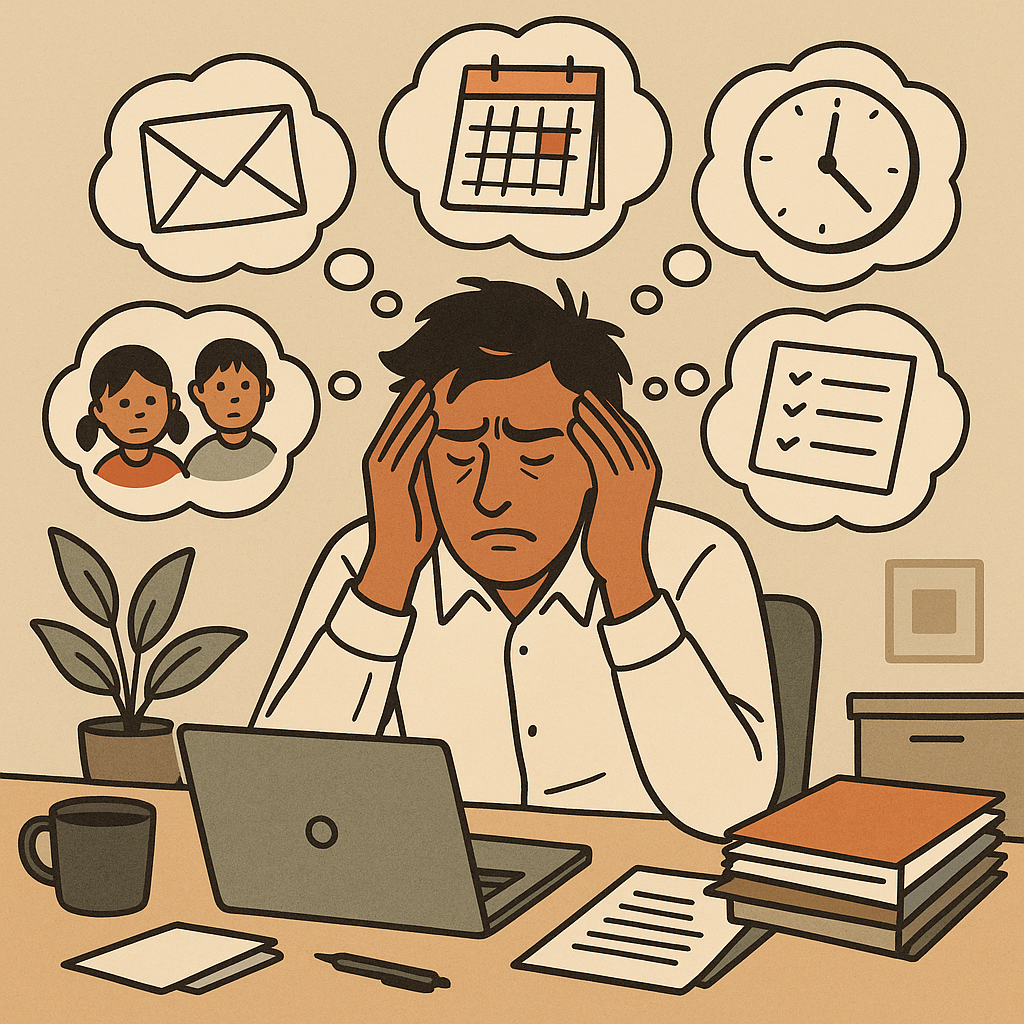
How Stress Affects Your Brain at Work
Stress and Your Brain: The Basics
Our brains are incredible machines, but they're sensitive to stress. In the workplace, we face two main types:
Acute stress - those short-term pressures like tight deadlines or a tense meeting
Chronic stress - the ongoing kind from heavy workloads or job uncertainty
These different types of stress affect our brains in distinct ways, particularly the prefrontal cortex - that's the brain's command center for complex thinking and emotional control.

What Is Counselling?
Counselling is often misunderstood as a last resort. This article explains why that belief quietly keeps people stuck — and why starting therapy is rarely the hardest part.

Why Overthinking Feels Productive — But Is Actually Self-Destructive
Why overthinking feels productive but quietly harms your nervous system. A clear, real-world explanation of how rumination keeps stress alive—and why letting go is a form of self-regulation, not weakness.

Online Counselling Stroud, Bristol & UK-Wide
Work pressure accumulates quietly. Online counselling in Stroud, Bristol & UK-wide for high-functioning professionals ready to address anxiety and burnout properly.

Guardian Article on Stress
Stress is a whole-body response driven by the brain, shaped heavily by early-life experiences, and not something people can simply “think” their way out of. It isn’t always harmful — moderate, predictable stress can sharpen performance — but chronic, uncontrollable stress does the most damage and often comes from repeated small pressures rather than major events. Exercise, diet, and weight responses vary from person to person, and humans are uniquely vulnerable to chronic anticipatory worry. Most importantly, stress is not an individual failing: it’s often imposed by external conditions, and prolonged stress makes escaping those conditions even harder.

Gabor Mate on Anxiety
Have you ever considered that your anxiety might not be a disorder at all, but a messenger?
Dr. Gabor Maté argues that anxiety is not something to simply accept or adapt to — it is a signal from the body, pointing toward something unresolved. As a counsellor in Stroud and Brimscombe, and an online counsellor supporting clients across the UK, I see this every day: anxiety is not fixed. With the right conditions, it can soften, shift and become deeply understandable.
